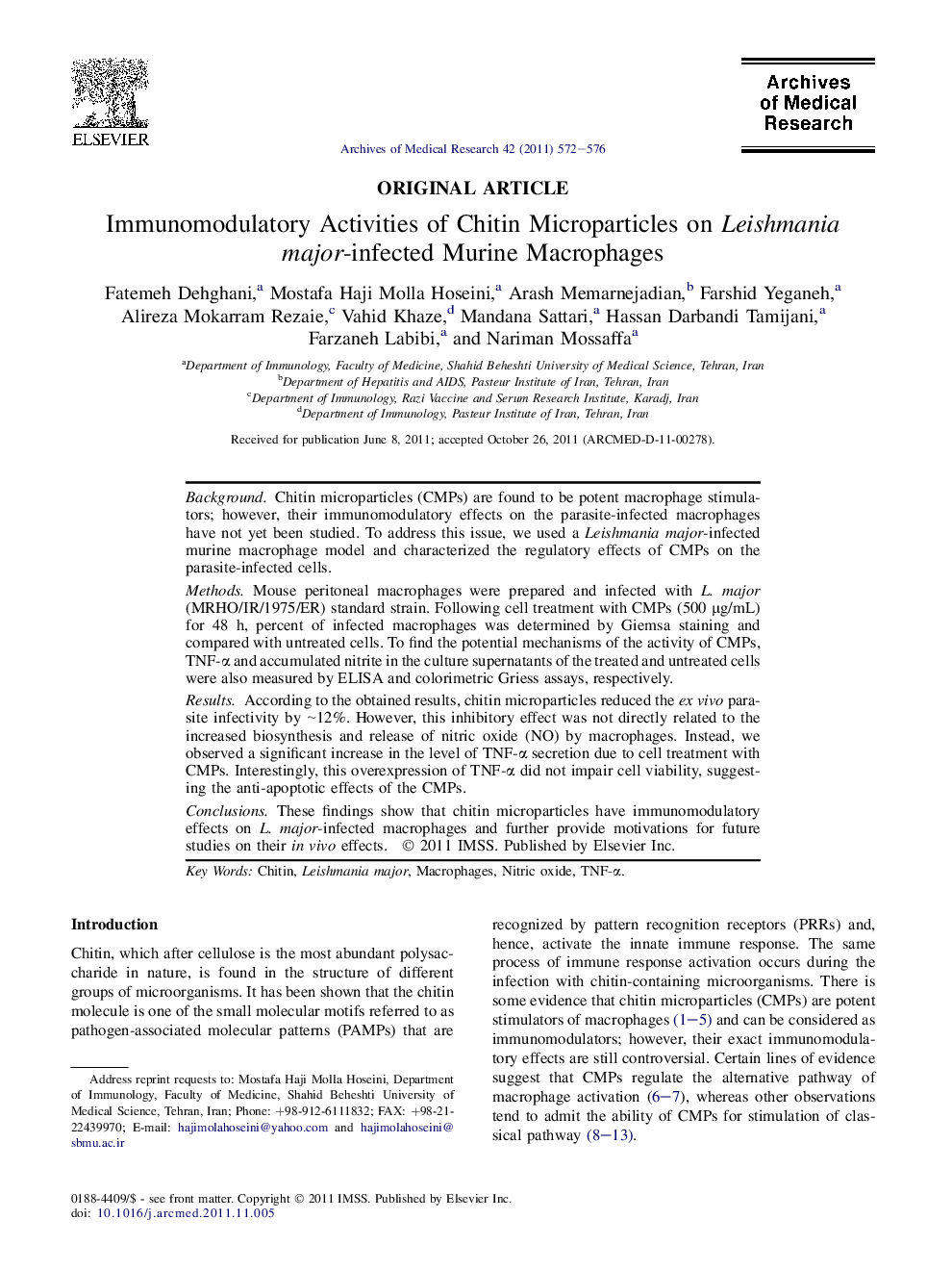| Article ID | Journal | Published Year | Pages | File Type |
|---|---|---|---|---|
| 3446732 | Archives of Medical Research | 2011 | 5 Pages |
BackgroundChitin microparticles (CMPs) are found to be potent macrophage stimulators; however, their immunomodulatory effects on the parasite-infected macrophages have not yet been studied. To address this issue, we used a Leishmania major-infected murine macrophage model and characterized the regulatory effects of CMPs on the parasite-infected cells.MethodsMouse peritoneal macrophages were prepared and infected with L. major (MRHO/IR/1975/ER) standard strain. Following cell treatment with CMPs (500 μg/mL) for 48 h, percent of infected macrophages was determined by Giemsa staining and compared with untreated cells. To find the potential mechanisms of the activity of CMPs, TNF-α and accumulated nitrite in the culture supernatants of the treated and untreated cells were also measured by ELISA and colorimetric Griess assays, respectively.ResultsAccording to the obtained results, chitin microparticles reduced the ex vivo parasite infectivity by ∼12%. However, this inhibitory effect was not directly related to the increased biosynthesis and release of nitric oxide (NO) by macrophages. Instead, we observed a significant increase in the level of TNF-α secretion due to cell treatment with CMPs. Interestingly, this overexpression of TNF-α did not impair cell viability, suggesting the anti-apoptotic effects of the CMPs.ConclusionsThese findings show that chitin microparticles have immunomodulatory effects on L. major-infected macrophages and further provide motivations for future studies on their in vivo effects.
